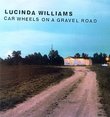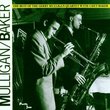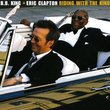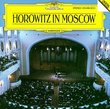| All Artists: Frederic Chopin, Claudio Arrau Title: Chopin: Etudes Op. 10 & 25/Trois Nouvelles Etudes; Claudio Arrau Members Wishing: 0 Total Copies: 0 Label: EMI Classics France Release Date: 10/25/1990 Album Type: Import Genre: Classical Styles: Forms & Genres, Etudes Number of Discs: 1 SwapaCD Credits: 1 UPCs: 077776101620, 077776101651 |
Search - Frederic Chopin, Claudio Arrau :: Chopin: Etudes Op. 10 & 25/Trois Nouvelles Etudes; Claudio Arrau
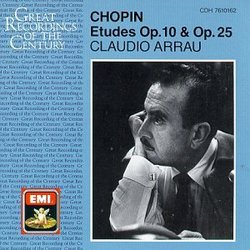 | Frederic Chopin, Claudio Arrau Chopin: Etudes Op. 10 & 25/Trois Nouvelles Etudes; Claudio Arrau Genre: Classical
Despite the slightly cramped, airless sonics, Claudio Arrau's characteristically warm and ample sonority makes itself felt in these 1956 recordings. The pianist may not scintillate or charm to the extent that Slavic pia... more » |
Larger Image |
CD DetailsSynopsis
Amazon.com Despite the slightly cramped, airless sonics, Claudio Arrau's characteristically warm and ample sonority makes itself felt in these 1956 recordings. The pianist may not scintillate or charm to the extent that Slavic pianists do in these works, yet he uncovers layers of depth and disquiet in the slower Études that others merely prettify. The treacherous extensions in the E- Flat Étude, for instance, are distinctly projected and balanced, rather than strummed. Even if some pieces might benefit from more outward panache, Arrau's spectacularly honest technique enables him to articulate Chopin's sparkling figurations with a liquid legato unaided by the pedal. As always with Arrau, the pianism takes a back seat to music making. --Jed Distler Similarly Requested CDs
|
CD ReviewsThe etudes as music jsa | San Diego, CA United States | 04/17/2006 (5 out of 5 stars) "Claudio Arrau recorded some Chopin for Decca in the early 1950's (now available on an Archipel disc), then signed a contract with EMI & set down both books of the Chopin Etudes as well as the Fantasy & Piano Sonata #3. A number of years ago EMI reissued his recording of the Etudes on cd in their "Great Recordings of the 20th Century" series & I must agree that these are among the great recordings of Arrau's career. Some have argued here that Arrau was not up to the technical challenges of the Etudes (indeed, Rubinstein only recorded a few of them & rarely played any in recital because he admitted that some were simply too difficult to do justice to); however, to claim that Arrau "botched" them is to completely misread his approach to music. Technical limitations did not force him to "cautiously play...presto as though it were allegretto"; he did this to transform the etudes from technical exercises into music. Those who are familiar with Arrau's interpretations will recognize that everything he did was for expressive purposes & was not a result of making the music conform to his technical equipment, especially at this point when he was still approaching the summit of his career. Chopin's etudes were not new to him either (he undoubtedly played them as a student) & they had ripened in his veins, having recorded a number of them decades before. He came to the studio this time - in the mid-1950's - as a fully developed artist rather than a young acrobat who had to prove that he could turn the piano upside down. While for Arrau it was all about the music & never the technique, I can attest to the fact that he retained a gigantic technique well into his seventies when I heard him play the Liszt sonata several times with incredible authority & clarity. Beethoven's op. 109 was another work with notoriously difficult passagework that I heard Arrau play in recital with astonishing ease. Ten years earlier he was titanic - listen, for example, to a live performance (ca. 1960) of the Chopin preludes on APR; or to any of the live recitals available on the Aura label from the late '50's to the early '70's. This was not a pianist with technical deficiencies. As a mature artist his technique was entirely at the service of the music he played - this was always apparent to the educated listener - & never on display simply to thrill an audience. In keeping with this, Arrau refused to play encores: his recitals were not entertainment, but serious expressions of art. Arrau's etudes have an extravagent feel that I find very appealing. There is plenty of excitement, muscle & drama here, plus poetry without sentimentalism. The op. 25 etudes are tremendously powerful - especially #10 which is a statement of epic proportions. I've never heard it played with such a buildup of tension, something Arrau was a master at. If you like to hear the etudes as a blaze of steely notes, then by all means get Pollini's recording. But if are looking for a mature musical statement by one the great pianists of the 20th century, then acquire this Arrau disc. " Great music making and, yes, pianism P. Kelley | SC United States | 09/09/2006 (5 out of 5 stars) "The curious remarks made by Amazon's reviewer, Jed Distler ("As always with Arrau, the pianism takes a back seat to music making") are a prime example of how myth making regarding Arrau's purported technical defiencies (see below ad nauseaum) can obscure the legacy of one of the greatest Chopin interpreters of the latter half of the 20th century. As a great pianist and child prodigy, Arrau had mastered Liszt's Transcendental Etudes as well as Brahms' Paganini Variations at the ripe old age of 11--so much for pianism taking a back seat to music making! In these recordings, Arrau approaches Chopin's Etudes as a genuinely mature musician and sensitive interpreter who obviously wishes to bring out their musical, not technical, qualities. In opus 10, no. 3, for instance, he infuses the music with a deep sadness that recalls its 19th-century title, "la tristesse." Incidentally, this record received the Grand Prix du Disque Frédéric Chopin from the Warsaw Chopin Society when it was re-released in 1990." EMI: Please remaster this classic! Rub�n | US | 12/29/2002 (4 out of 5 stars) "The performance is almost beyond reproach. This 1990 version of the 1956 recording should be re-remastered in 2003. Listen to what the recent EMI remasterings of Nathan Milstein's 1954 and 1956 recordings of Bach's violin sonatas and partitas sound like. They sound like they were recorded today."
|

 Track Listings (27) - Disc #1
Track Listings (27) - Disc #1